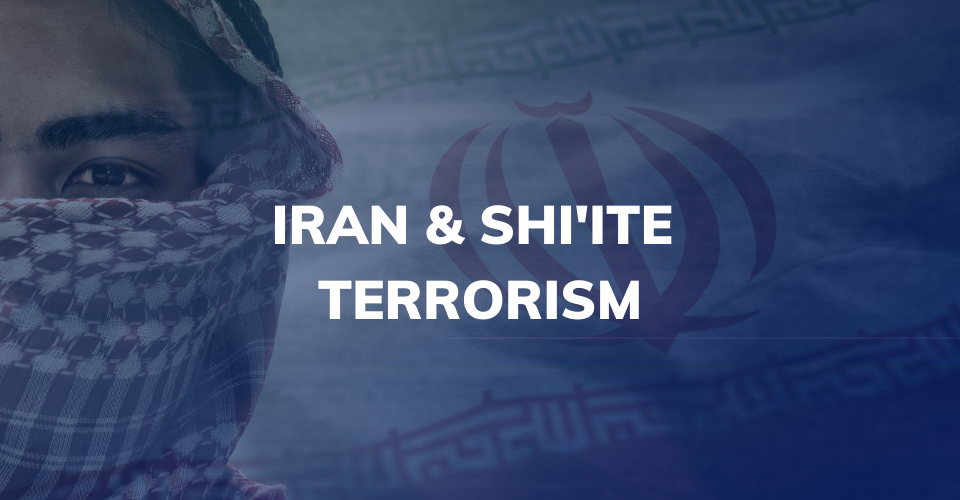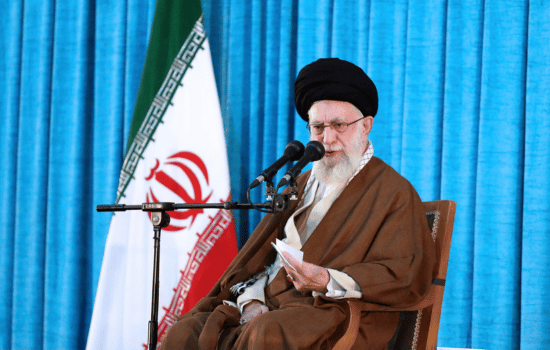The U.S. Caesar Act Could Benefit Iran and Hezbollah
On June 17th 2020, the U.S. Government started implementing several aspects of the Caesar Syria Civilian Protection Act of 2019. The purpose of this Act is to make Syrian President Assad’s regime accountable for its atrocities during the ongoing Syrian Civil War, while at the same time sending a clear message to all those interested in doing business with the regime to refrain from doing so. While this law is important and well-deserved, ultimately it is limited in impact in terms of effective curtailing of financial dealings by Iran and Hezbollah with Syria, and moreover it may even unintentionally benefit these terrorist entities in the process.
The Caesar Act targets any attempt of the Assad regime to rebuild Syria and its military infrastructure by imposing financial sanctions on those cooperating with the regime, as well as limits the entry of designated individuals involved in such efforts into the U.S. As of today, it would seem that only two main actors are actively seeking to assist the Assad regime: Russia and Iran. It appears that China is becoming another contender, as can be seen from the establishment of a shipping hub in neighboring Lebanon’s Tripoli. Despite praise for the Act offered by its supporters, it can be argued that its effectiveness is limited: While the Caesar Act will impact Russian and Chinese companies through sanctions if they conduct any business with the Syrian government, Iranian companies and Hezbollah entities will not be affected by this Act because they are already designated as warranting sanctions by previously passed legislation and executive orders. To this extent, the Caesar Act, while commendable, has limited impact.
Both Iran, through its Iran Revolutionary Guards Corp, and Hezbollah, have a vast international and local network of businesses, which have been designated by the U.S. Department of Justice and the U.S. Treasury over the past decade. Yet the facts on the ground indicate that these designations have succeeded in halting some of these companies’ activities, specifically those located in Iran, Lebanon and Iraq. For example, in Lebanon, the Adham Tabaja network, one of Hezbollah’s senior Business Affairs Components officials that has already been designated by the Hezbollah International Financing and Prevention Act of 2014 (HIFPA), operates freely within the country and is responsible for some real-estate projects through its construction companies. As the Caesar Act cannot harm this network any more significantly than HIFPA has, Tabaja’s construction companies can continue to operate freely in Syria in direct contradiction to the purpose of the Act. This is also possible since the Hezbollah financial network is disconnected from the Lebanese banking system and operates on a completely independent and parallel one in its place. In other words, while other Lebanese construction companies will not be able to operate in Syria, Hezbollah companies can and will accept new and lucrative construction contracts with little to no competition.
This situation also places further strain on an already failing Lebanese economy. While the purpose of the Caesar Act is understandable and warranted, Syria is one of Lebanon’s trading partners. The Lebanese economy is in dire need for an immediate cash injection in light of the daily increase in unemployment in this country. The younger workforce of all sectors of society is demanding a change with new employment and financial opportunities. Not only is Lebanon losing a potential source of income in trade with its neighbor, Syria, Hezbollah entities will continue bringing in revenues for themselves and their supporters, thereby increasing the already tense social divide and allowing the organization to not only maintain its financial situation, but to increase it on account of the Lebanese state.
The new restrictions imposed on the Lebanese people in the form on the Caesar Act, pose a difficult question for U.S. decision makers: how can the interests of the Lebanese people be protected while implementing a morally justified Act against a terrorist regime, when that same Act could inadvertently harm them? One possible solution is giving Lebanese companies a waiver from restrictions imposed by the Caesar Act, as the U.S. did for Iraq and six other countries in the case of Iranian sanctions. While providing the Lebanese economy with a potential source of income, exempting Lebanon from these restrictions will also hinder Hezbollah’s financing attempts and growing business strength in the region. Another possible solution could come in the form of a different set of sanctions directly targeting IRGC and Hezbollah owned businesses and social programs already operating in Syria, such as the new power planet being constructed by Iran on Syria’s coastal city of Latakia.






